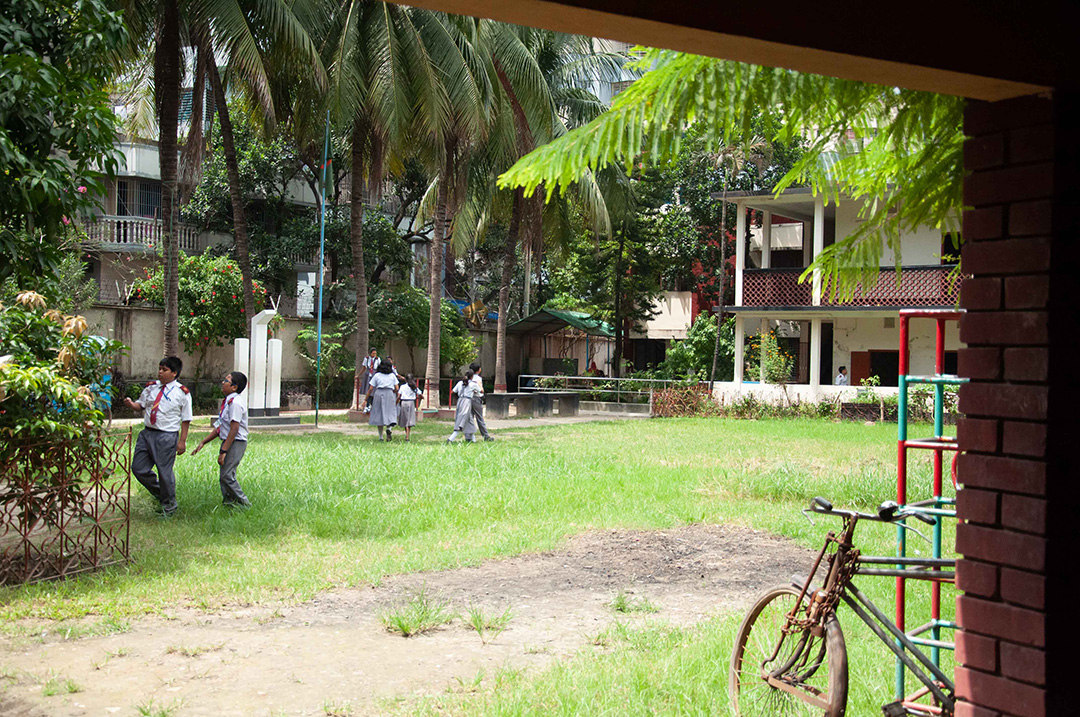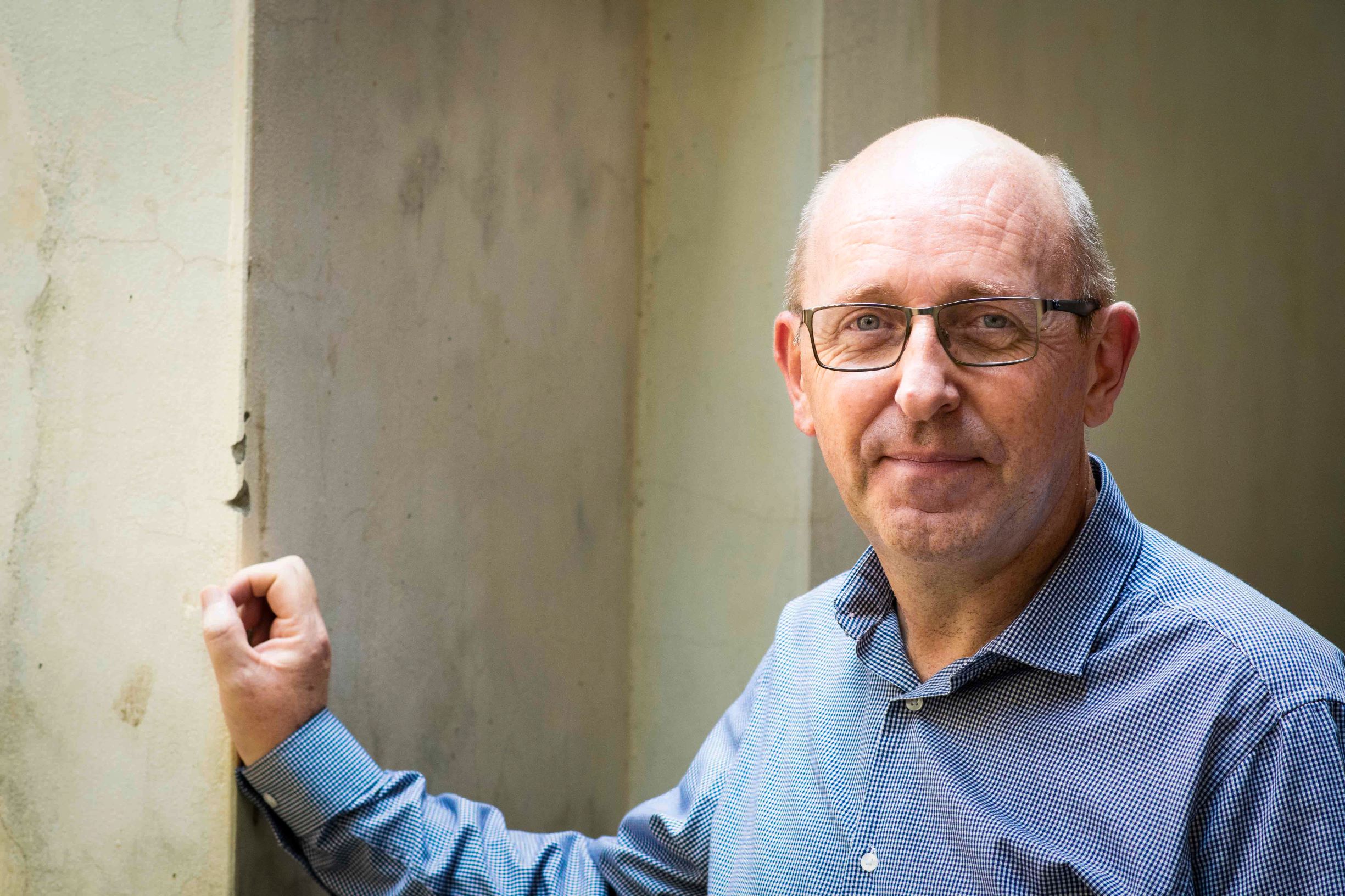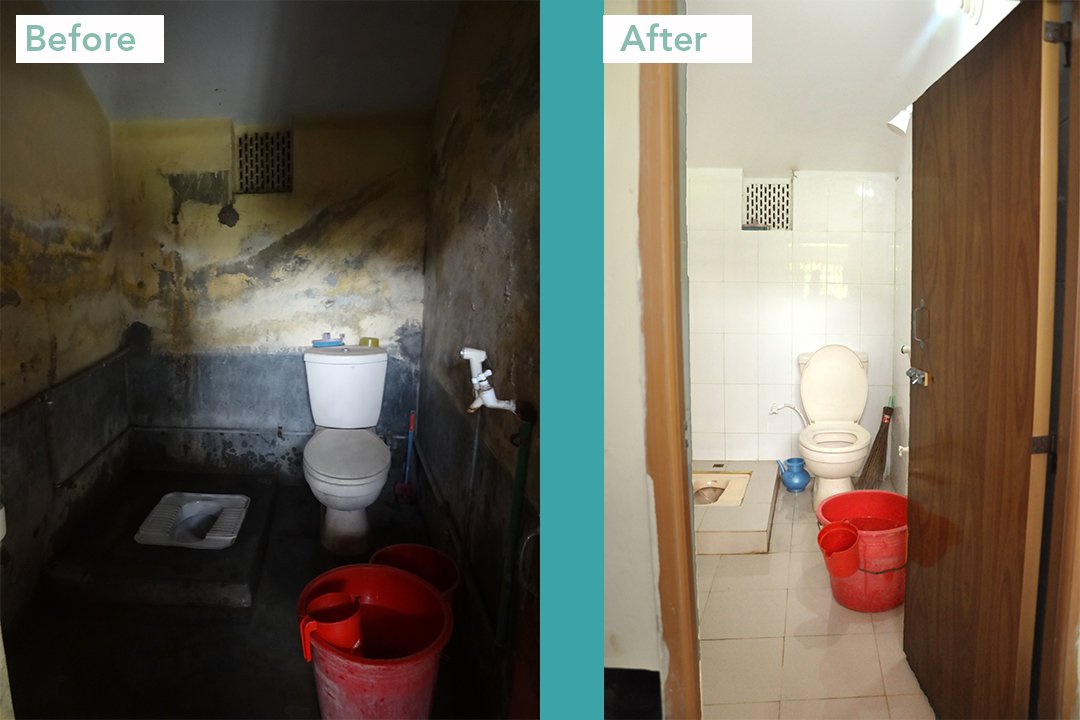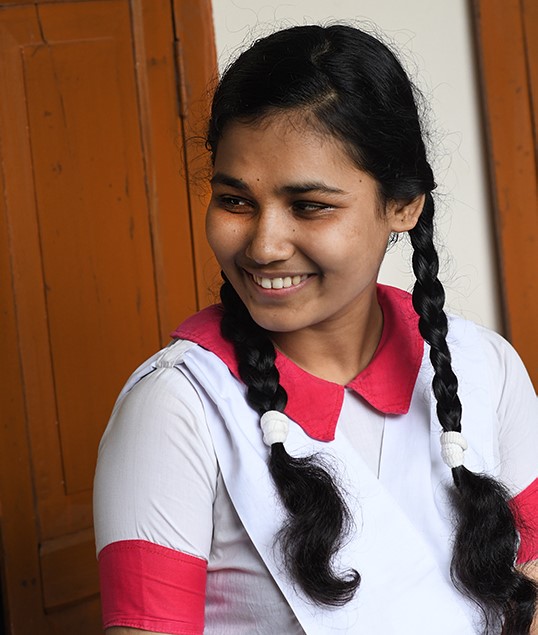The sound of thriving
The sound of thriving:
You can help raise up female leaders in Bangladesh
Tackling taboos, preventing disease and ensuring security, BMS World Mission’s Phil Proctor is enhancing the quality of life in Bangladesh’s only residential school for girls who are blind.
Young children giggle, their fast footsteps pattering on the patio floor. Birds tweet overhead as voices, singing to the soft beat of an Asian drum, float into the courtyard. I follow Phil Proctor, BMS engineer, into a school building, into this oasis of calm in one of the world’s most densely populated cities: Dhaka, Bangladesh. Soon, the tuneful quiet is broken by the loud humming of a helicopter – but the pupils continue to laugh, and the voices continue to sing.

Founded in 1977 by BMS missionary Veronica Campbell, the Baptist Missionary Integrated School (BMIS) first began with five female pupils with impaired vision. At the time, there were no schools for girls who were blind. Now, the school cares for vulnerable children across Dhaka and more rural areas, with dormitories for 100 girls from disadvantaged backgrounds. From about the age of 11, children who are blind and sighted children are integrated, enjoying lessons together. Today, BMIS remains the only residential school in Bangladesh for girls who are blind.
Maintaining this pioneering school hasn’t been easy. Engineer Phil has been working alongside the school staff to maintain the building and keep it safe, improving the girls’ standard of living and preventing illness. “The school’s boundary wall had collapsed. The monsoon waters flooded in every year at two to three feet deep,” he describes. “We replaced the wall and reinforced it with steel. We haven’t had any flooding this year. It’s been a great success!”

With only three per cent of Bangladeshi women having access to sanitary products, the BMS engineer tentatively broached the subject with the school’s previous principal. “For me to bring it up, man to man, was taboo,” he says. “But he was happy to listen.” It’s one of the pressing issues for current Principal Ms Gloria Baroi. Together, they decided that clean, safe spaces for the girls to use was a great place to start. Following Phil’s lead, I stand in front of one of the seven bathrooms he’s worked on with local builders. Regular flooding and persistent damp meant this now sparkling clean room used to be dark and unsanitary. “Just because the girls couldn’t see it, didn’t mean they had to live with it,” he says. “Now the pupils can feel comfortable and safe, there’s a lock on the door and it’s a much nicer place to be.”

In addition, Phil refurbished the girls’ dormitories and fixed rotting wooden shutters on many of the windows. “We’re thankful for all the support we’ve had,” Phil says. “We’d love to do a lot more and I’m sure with your prayer and support we can!” All the work is part of the school’s commitment to seeing pupils reach their full potential, regardless of circumstance.

I want to know what the girls think of their school. Talking to Jula, aged 18, I discover that music plays such an important part in realising potential, and that it’s a cherished activity here. “I can sing and dance,” says Jula. “I’m happy I’m a student here.” BMIS took her in at a young age, providing her with food each day, a comfortable place to stay and specialised education. “Our school gives us a way to fulfil our dreams,” says Jula’s friend, Subarna. Aged 16, she aspires to one day become a lawyer.
Switching from Bengali to perfect English, catching me off guard, the girls chime, “Our school is the best!” And I think about the girls joyfully singing. I think of the teacher who became blind after an acid attack, returning to teach at the school where she used to be a pupil. I think of how so many countries need more strong female leaders, including Bangladesh, a country that’s already welcomed women in leadership, in the shape of prime ministers and politicians, but has space for so many more. And then I listen, to the laughter, the music, the running feet, to the sound of thriving in the school around me.
Want to support BMS mission worker Phil Proctor as a 24:7 Partner?
Thousands of Christians across the UK give regularly by Direct Debit as 24:7 Partners every month, not because it feels good, but because following Jesus means taking seriously his command to love, heal and spread his Word. Could you join them?
Words by Melanie Webb.
